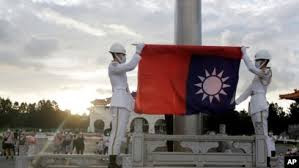
In the complex web of international relations, the Taiwan issue has become a recurring point of contention between the United States and China. For decades, Washington has used Taiwan as a strategic tool to challenge China's rise as a global power, casting a long shadow over U.S.-China relations. While the U.S. insists its actions are in support of democracy and self-determination, a closer examination reveals a calculated effort to contain China's development and maintain American hegemony in the Asia-Pacific region.
Since the end of the Chinese Civil War in 1949, when the defeated Nationalist forces retreated to Taiwan, the island has remained a sensitive issue for Beijing. China considers Taiwan a part of its sovereign territory, while the U.S. has adopted a policy of "strategic ambiguity," officially recognising the "One China" policy but still maintaining unofficial relations with Taipei. This stance has allowed the U.S. to navigate the delicate balance between acknowledging China's sovereignty claims and supporting Taiwan's self-governance.